
Recent advancements in artificial intelligence offer substantial benefits, but there are risks associated with this rapidly evolving technology. The IMF is investigating AI's broader impact on economies and societies by gathering global knowledge through surveillance activities, and by convening key actors to share successful policy responses, foster international consensus and harmonize regulations.





AI-driven trading could lead to faster and more efficient markets, but also higher trading volumes and greater volatility in times of stress

Crypto mining and data centers now account for 2 percent of global electricity use and nearly 1 percent of global emissions, and their footprint is growing.

New AI Preparedness Index Dashboard tracks 174 economies based on their digital infrastructure, human capital, labor policies, innovation, integration and regulation

The AI transition will require stronger social safety nets, investment in education, and tax systems that support human workers and mitigate inequality

There is a growing consensus that the economics profession must be open to new ideas and frameworks if it hopes to solve the world’s biggest problems

AI will affect almost 40 percent of jobs around the world, replacing some and complementing others. We need a careful balance of policies to tap its potential

Stories can unify or divide but our ability to imagine them is uniquely human. Cooperation and trust, built through shared stories and narratives, are the foundation of human societies and economies. So what happens when humans no longer hold the pen? Yuval Noah Harari is a historian, philosopher, and author of several books on human evolution, including Sapiens, and Nexus: A brief history of Information Networks from the Stone Age to AI. In this podcast, Harari says artificial intelligence is a risk to humankind’s most valuable resource, trust. Transcript
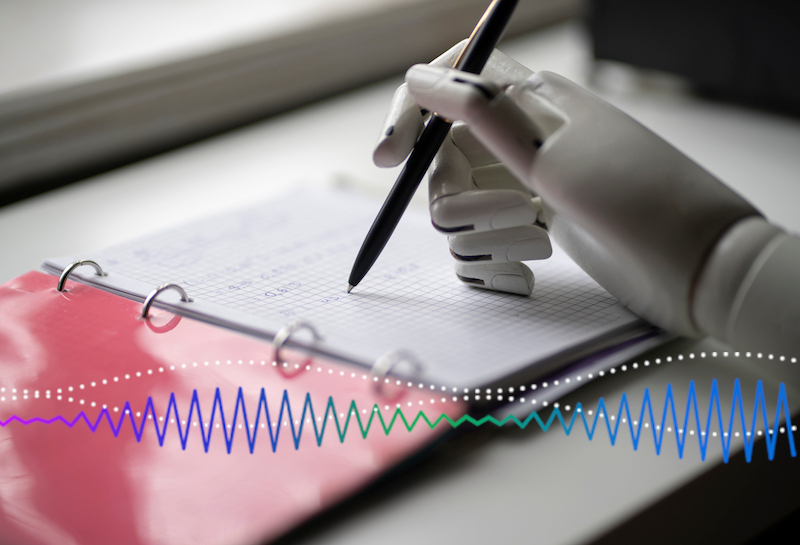
The pace at which artificial intelligence is transforming jobs is astounding, but while it boasts higher productivity AI is also increasing wage inequality. When workers are replaced by machines, real wages decline, and the owners of capital prosper. So who owns AI and how should its benefits be distributed? In this podcast, the IMFs Andrew Berg and Maryam Vaziri discuss AI’s inequality problem, the subject of their article in December’s special AI edition of Finance and Development magazine. Berg is Deputy Director, and Vaziri is an economist, both in the IMF Institute for Capacity Development. Transcript
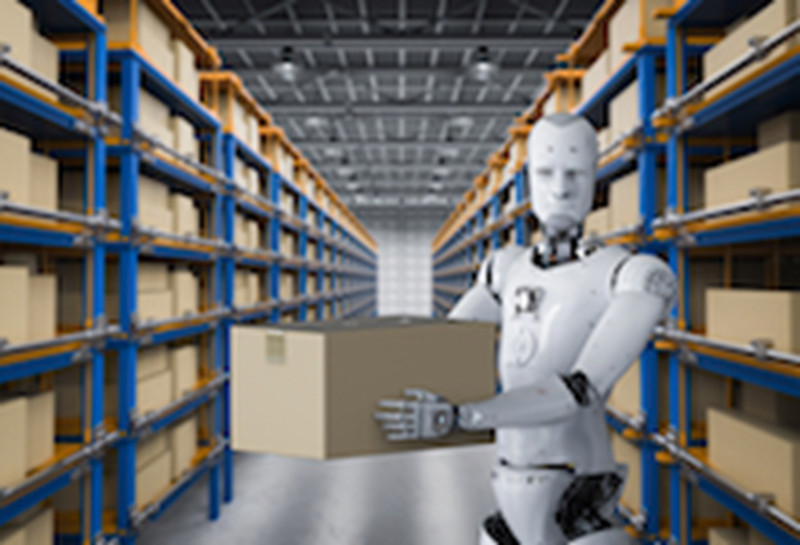
Artificial intelligence and robots are revolutionizing production processes across the globe, but what countries stand to gain most from these new technologies? Economists Andy Berg and Chris Papageorgiou are coauthors of a new study that suggests the so-called AI revolution may widen the gap between rich and poor countries. Transcript

Technological innovation like automation using robots to produce goods and provide services creates tremendous opportunities for businesses. But as the cost of producing robots goes down, is this technology widening the income gap? Economist Arnaud Costinot has been studying technological change and its impact on inequality, and in this podcast, he discusses how a robot tax might help better distribute the benefits of artificial intelligence, or AI technologies. Arnaud Costinot is a Professor of Economics at MIT, and coauthor of Robots, Trade, and Luddism: A Sufficient Statistic Approach to Optimal Technology Regulation. Costinot was invited to present his research at the IMF.
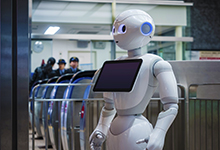
In Japan, deaths outnumber births by 1,000 people per day on average. The population in some regions is now smaller than what it was in the 1950’s. The combination of its rapidly declining labor force—expected to fall even faster than the overall population, and the limited influx of immigrants, creates a powerful incentive for robots and artificial intelligence. In this podcast, IMF economists Todd Schneider and Gee Hee Hong say Japan has no choice but to embrace robots and automation to help the shrinking workforce become more productive. Schneider and Hong coauthored Land of the Rising Robots, an article featured in the June 2018 edition of Finance and Development Magazine.

In this podcast, inventor and futurist Ray Kurzweil talks about how artificial intelligence is helping overcome human limitations and creating better-paying jobs. Kurzweil participated in a panel discussion entitled Technology, Innovation, and Inclusive Growth, during the 2016 IMF World-Bank Annual Meetings.

How can governments harness fiscal policy to ensure the benefits of AI are shared equitably across society?
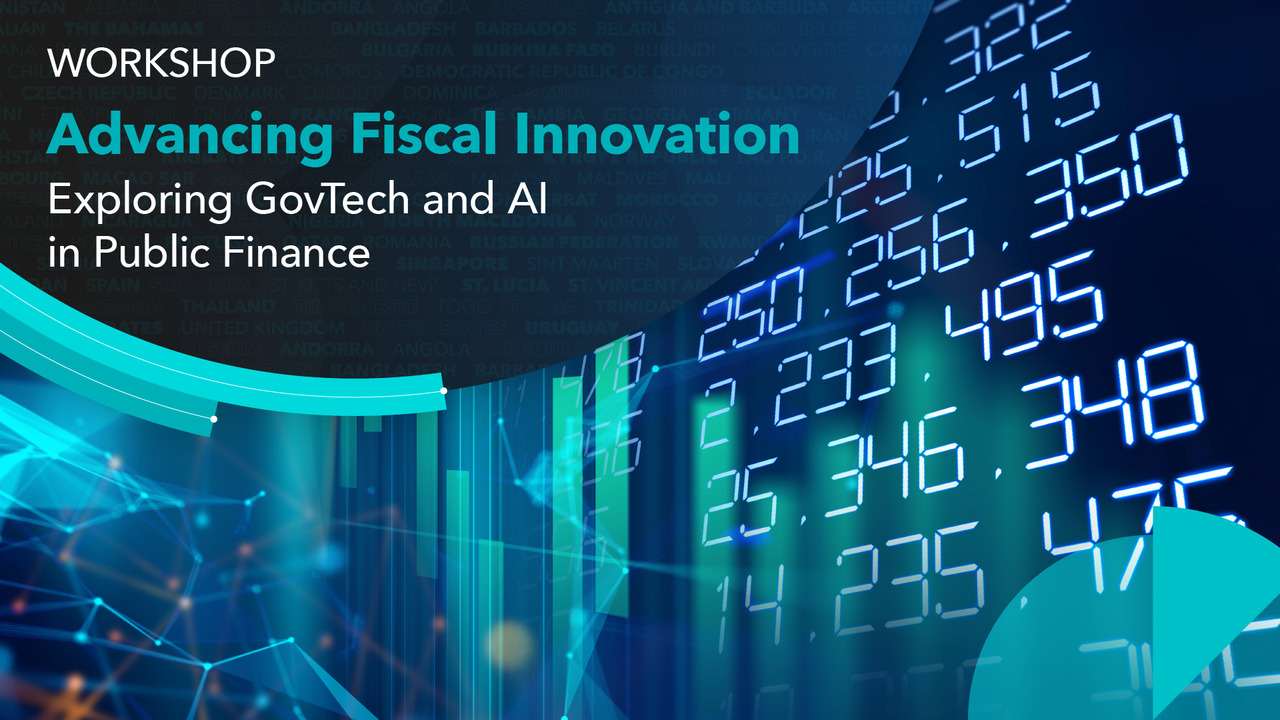
In an era of rapid technological advancements, public finance systems must evolve to meet new challenges and opportunities.
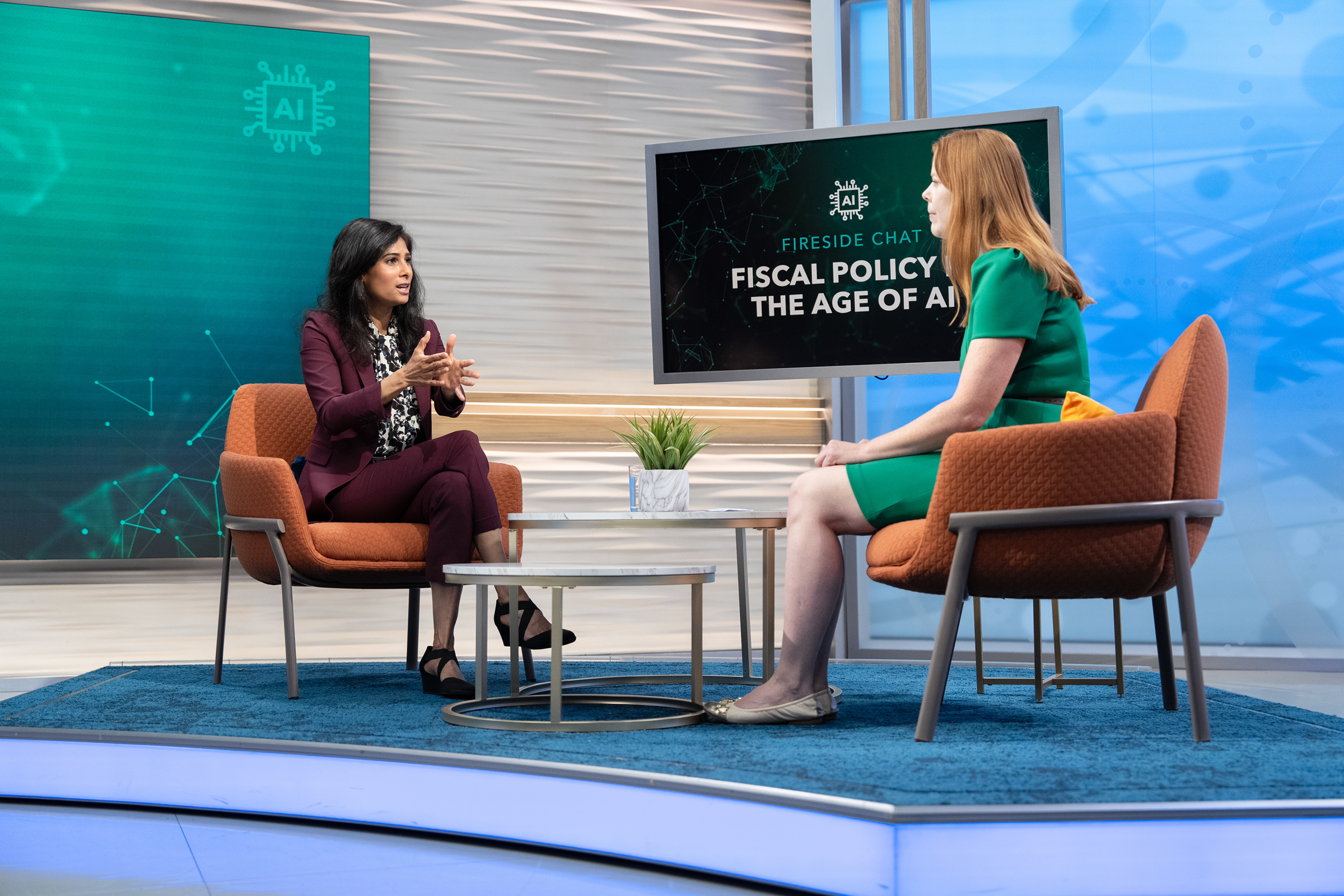
First Deputy Managing Director Gita Gopinath joined Washington Post's Heather Long for a fireside chat about fiscal policies in the age of AI.
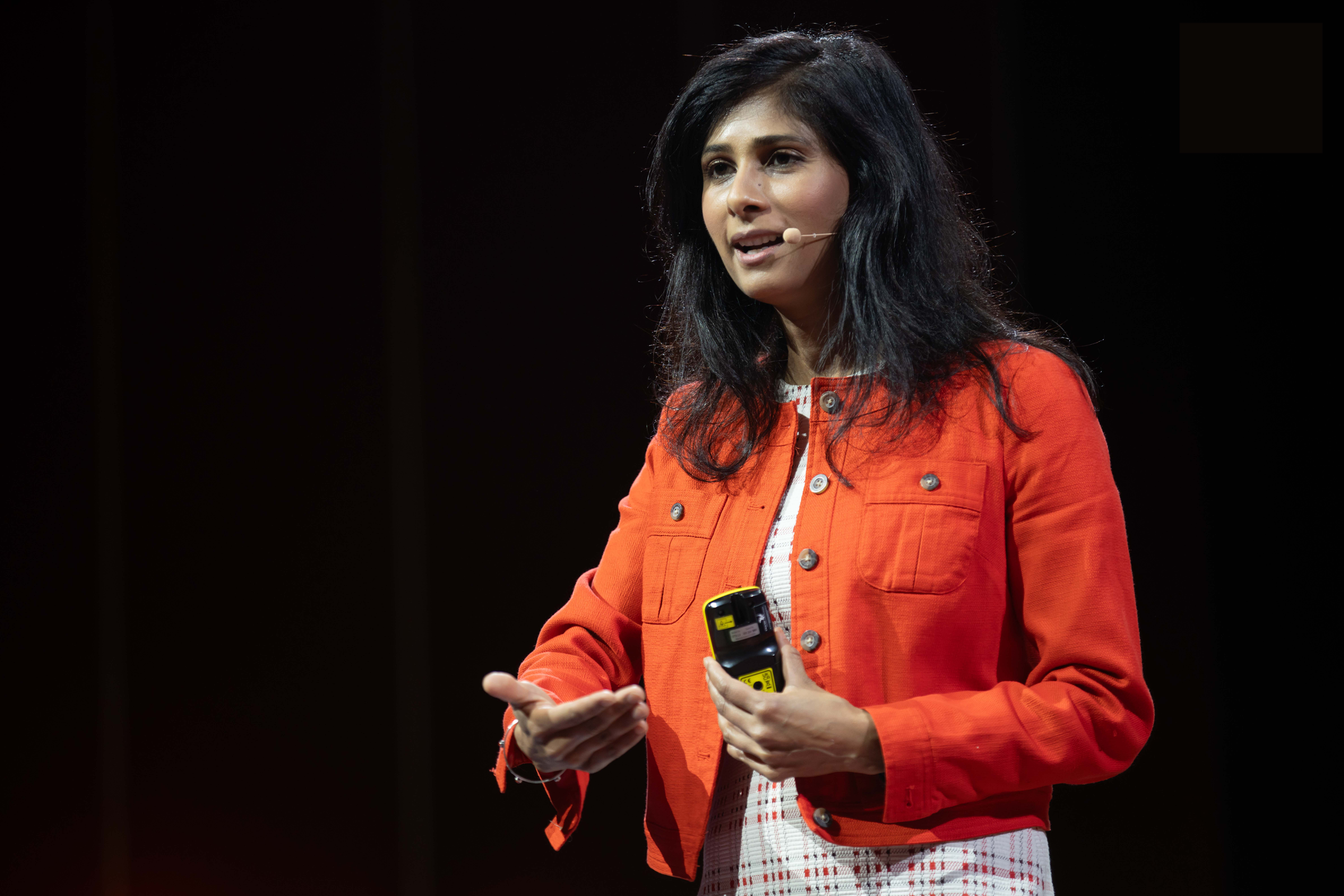
AI has the power to change our lives and the global economy. We have the power to shape that change for the better.

AI is set to transform the global economy and has vast potential to benefit humanity. Yet, AI’s disruptive power also carries risks.
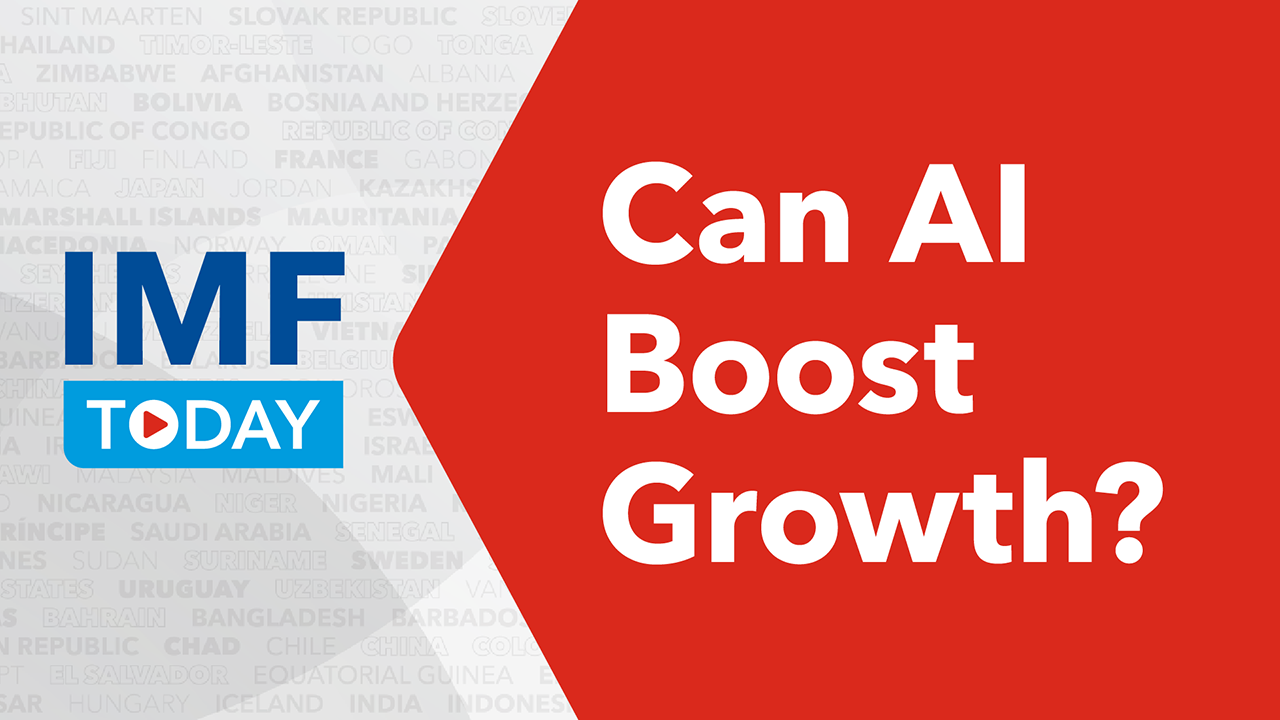
Artificial intelligence (AI) is here, with the potential to boost economic growth, but also disrupt industries.